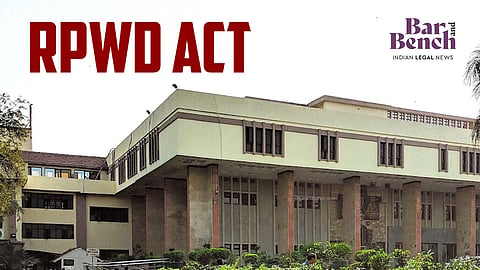The Delhi High Court on Thursday quashed the Airports Authority of India’s (AAI) rejection of a blind candidate for Junior Executive (Law), holding that the ability to “see” must be understood beyond the physical sense of sight [Mudit Gupta v Airport Authority of India and Anr].

